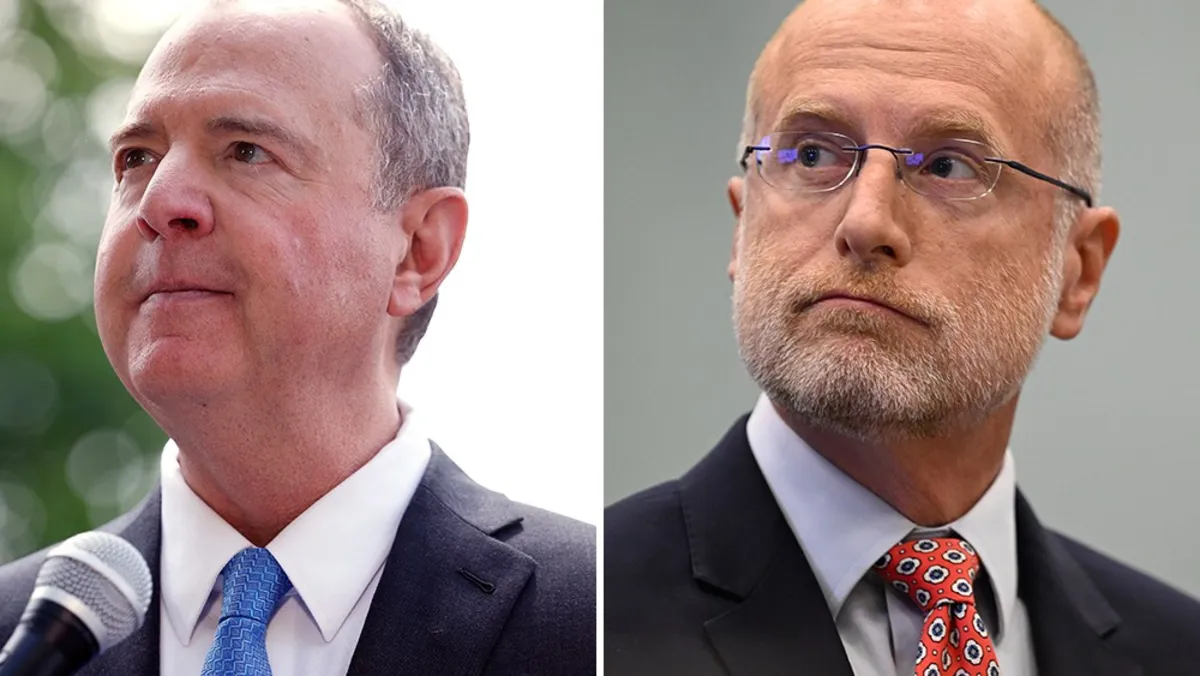
After a brief hiatus, Jimmy Kimmel is back on air, but the controversy surrounding his show continues to unfold. Congress remains actively engaged in investigating whether Kimmel's show was suspended due to unlawful pressure from the Federal Communications Commission (FCC). On Wednesday, Senator Adam Schiff and eight other senators sent a formal letter to FCC Chairman Brendan Carr, raising several pertinent questions regarding the incident.
The senators voiced their concerns that Carr’s actions, coupled with President Trump’s lawsuits against media organizations and attempts to defund public broadcasting, represent “the most blatant and coordinated attack on the free press in American history.” In their letter, Schiff and his colleagues emphasized that the FCC’s regulatory authority over broadcast licenses was never intended to serve as a weapon to silence criticism or penalize satirical commentary.
“Your agency’s mission is to serve the public interest, not to act as an enforcement arm for political retribution against media outlets that displease those in power,” the senators asserted, highlighting the critical role of the FCC in protecting the integrity of the media landscape.
The controversy ignited on September 15 when Kimmel remarked that the “MAGA gang” was attempting to distance itself from the killer of Charlie Kirk for political advantage. This led to a swift backlash from conservative circles, prompting Disney-owned ABC to suspend “Jimmy Kimmel Live” just two days later. Carr had threatened action against local affiliates, labeling Kimmel's comments as “really sick.”
Chairman Carr has since attempted to downplay his involvement in Kimmel’s suspension, clarifying that he never threatened to revoke licenses. Instead, he claims that the decisions made by Nexstar and Sinclair—two major ABC station groups—were independent. Carr praised these companies for choosing to preempt the show, framing it as an adherence to the “public interest.”
In a related development, another group of senators led by Senator Elizabeth Warren sent a letter to the CEOs of Nexstar and Sinclair, demanding an explanation of their actions. They specifically inquired whether Nexstar’s decision to pull the show was influenced by its pending merger with Tegna, which is currently under FCC review.
Senator Schiff's letter to Carr includes requests for disclosures regarding any communications between the FCC, ABC, Disney, or its affiliates related to the Kimmel show. The letter also seeks clarity on the FCC's statutory authority regarding the revocation of broadcaster licenses or imposition of fines based on satirical or critical content.
While Carr has emphasized the importance of local stations maintaining the “public interest,” he may face further questioning. Democratic Senator Ben Ray Luján recently urged Republican Chairman of the Commerce Committee, Ted Cruz, to call Carr in for questioning regarding the controversy. Interestingly, Cruz, typically aligned with Republican viewpoints, has criticized Carr’s management of the situation, suggesting it could lead to negative repercussions for conservatives if the government begins to threaten free speech.
The unfolding events surrounding Jimmy Kimmel’s show highlight significant tensions between media freedom and political pressure, raising important questions about the role of the FCC in safeguarding the press in America.